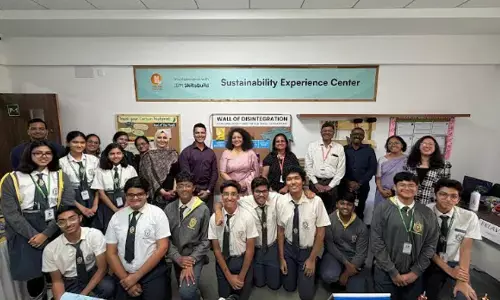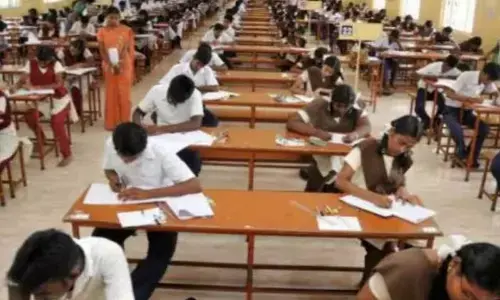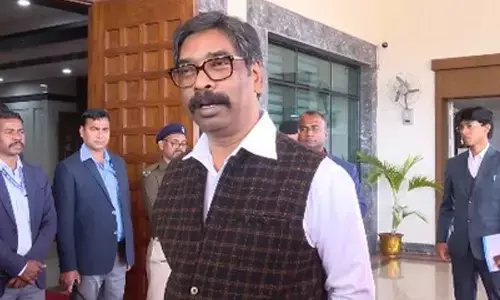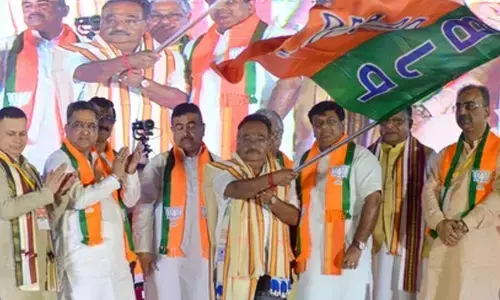Education, Skill Development impact on Economic Growth in India
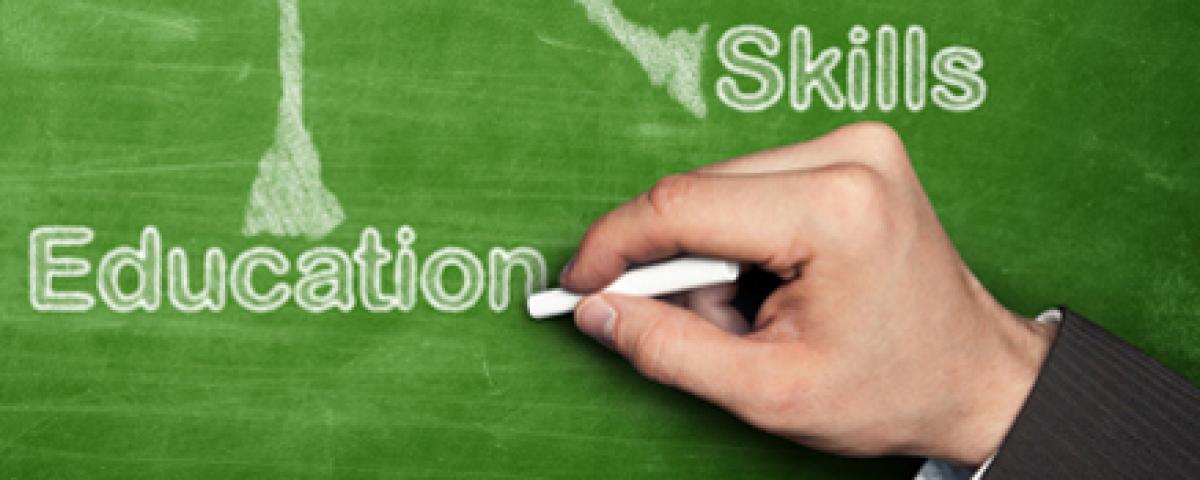
Education is a process of facilitating learning - knowledge, skills, values, beliefs etc. So, education determines the country’s future as it is having all the powers to change everything.
Education is a process of facilitating learning - knowledge, skills, values, beliefs etc. So, education determines the country’s future as it is having all the powers to change everything. We have come across so many philosophies like naturalism, realism, idealism, modern philosophies and philosophers like Jhon Dewey, Arbinto Gosh, Rabindranath Tagore, MK Gandhi who believed in traditional way of learning along with modern concepts and also Nehru had strong believe in Rationalism.
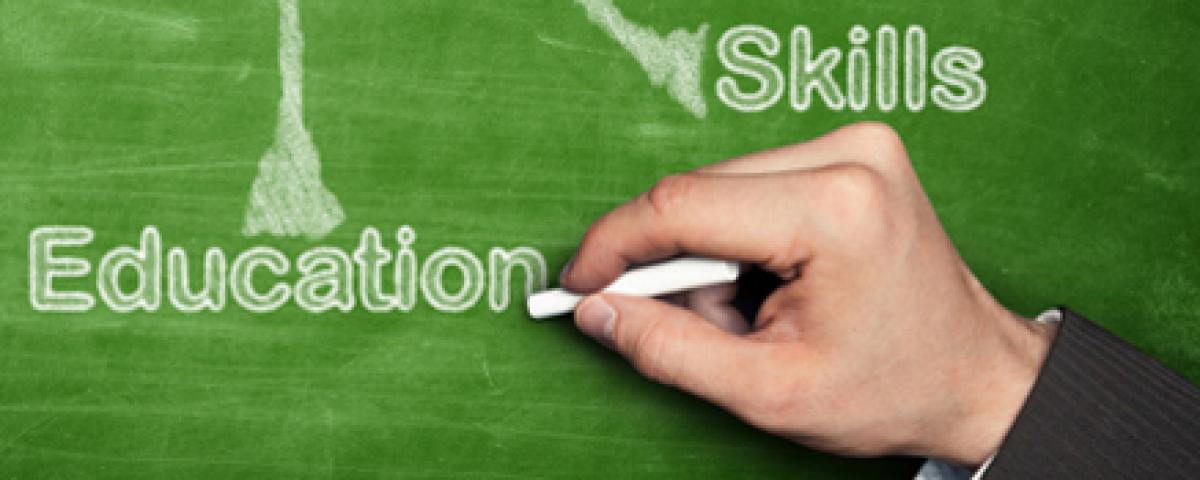
Apart from these, we had older way of educational methodology like Gurukuls, where students have to stay and learn the mantras, Upanishad by storytelling, games, managing the battles, moral values, leadership skills etc taught by gurus. But the drawback of this methodology was it is only applicable for certain group of people like those who are from Shatriyas and other forward castes.
The difficulties and struggle were felt from the olden period onwards, but still we did not achieve 100% in that. It should reach all people irrespective of age, sex, economic status, religion, language, cultures etc. “Education for All” Initiative must be initiated soon. “A high rate of education is essential for countries to be able to achieve high levels of economic growth so that the developing countries should grow faster than rich countries because they can adopt cutting edge technologies already tried and tested by rich countries”.
Strong Review Argument
Education contributes to economic growth by imparting basic attitudes, moral values and specific skills, which are necessary for variety of places. It contributes economic growth by improving health, reducing fertility, and political stability. Importance of educational system is to produce a literate, disciplined, flexible labour force via high-quality education. Musiban Adelunji et al (2005), the paper investigates the long run relationship between the education and growth in Nigeria by Johansen co-integration technique and the vector error correction methodology.
The results showed that long run relationships between enrolments in primary and tertiary level as well the average years of schooling with output of workers. The results revealed that a well-educated labour force possessed a positive and significant impact on economic growth through factors accumulation and on the evaluation of total factors productivity. P Aghion et al (2009) conducted a study on casual impact of education on Economic growth’s evidence from U.S. The hypothesis tested some investments in education raise growth. They find that exogenous shocks to research type education have positive effects in states fairly close to the technological frontier.
Denise Hawkes et al(2012) a meta analysis was done on relationship between education, skill and economic growth in low– income countries(LICs). Objective of the study was to address the impact of education, skill on economic growth to the direct effect on human capital investments on growth in LICs. The search based on 43 LICs, 3,842 unique studies were screened. The results showed that investing in education skills promotes economic growth in LICs correct in general. Also, some gaps like improper measurements in education and skills were found.
The principle finding suggests that those national and transnational organizations who have invested heavily in human capital development in LICs are likely to see a return on this investment in terms of economic growth.
UNIVERSAL BASIC SKILL:
What countries stand to gain? OECD (2015), the analysis shows that growth is directly and significantly related to the skills of the population. The key is to measure the skills properly. Skills are measured by the aggregate test scores on international mathematics and science tests. Concluded that population’s knowledge, capital, or collective cognitive skills, is by far the most important determinant of a country’s economic growth.
Hanushek and Woessmann (2008), a study conducted on the role of cognitive skills in educational development shows that school attainment alone has not guaranteed economic conditions and they assessed the International Achievement test across the countries. The findings in Singapore, Taiwan, and Korea showed scores above 555. But India is in between the score of 400-450 and the assessment of grades the school dropouts between grades 5 – 9 and never enrolled school are more in south Asia particularly in India.
The study concluded that cognitive skill of the population is powerfully related to individual earnings to the distribution, to economic growth and also much larger skill deficits are there in developing countries. The main objectives of this article was to assess the existing level of education and skill development that will help find solution to fill the gap between the existing and future education, skill development in India.
Present Educational System in India
The Indian educational system is producing more graduates every year. But the graduates have lack of basic communication and problem solving skills. Those are essential for even the elementary level jobs. Today’s education is seen only in earning money. Education is offered to earn good money and also the educational institutions have become more commercialised.
When we talk about present curriculum in India, it is out dated nearly 30 years old. Some institution sticks on an old curriculum. Few want the change and fight a long futile battle trying to change it. So there is a need of massive change in present and development of new curriculum along with administering the planned one. Vocational training should be mandatory alongside lots of practical work, as more importance has been given to theoretical classes rather than practical classes due to many issues like lack of facilities, lack of trainers etc.
The present day education system in India comprises of about 600,000 primary, 150,000 upper primary, 70,000 secondary school and higher secondary schools. The network of institution of higher education includes more than 7000 colleges of general education about 1000 professional colleges and number of specialised institutions in industrial, scientific, technical, social sciences and research. There are 150 million students who are enrolled with an employment of about 4 million teachers.
Creating more schools and allowing hundreds of colleges and universities to mushroom is not going to solve the crisis of education and economic growth in India. Parents are spending more money for education, even though not getting standard education and struggling to find employment of their choice. There are millions of students who are the victims of unrealistic, pointless, mindless rat race. The mind numbing competition is not only crushing the creativity and originality of millions of Indian students but also drives students to commit suicide.
Significance of Education, Skill and its Impacts on Employability
Education is the backbone of each family that too women’s education is very essential. Nowadays, the value of education is just earning a degree without a goal, why this happens? The reason is lack of reinforcement, loss of hope on employment. “Nation does not need pointless, goalless youngsters, instead need mindful, talented, skilful youth to compromise the dynamic society and improve the status of our country among others”. So the government has the responsibility to bring the hope and set stage for the youngsters of India.
Each individual has to think and answer these questions like where we stand? What we have? Where has to go? What is our life time goal? How to bring the status in the society? This is not only for the people and also for the nation. The Nation also should set the goals on what we have? What must be taken initiative to improve the economic growth? What are all the sectors that need attention to improve the economic growth? So select that kind of areas and plan the strategies to implement the methodology which should contain need based education and skill development and plan for periodic monitoring.
Education alone is not needed. For proper execution, skill is necessary. In India, importance of skill is an unattended aspect except in few areas like Medicine, Engineering etc that too not everywhere. What about other areas of studies? The graduates are still struggling in communication, lack of boldness to present the presentations. India is composed by demographic dividend with multiple languages, cultures, religion etc. So teaching in common language is not possible like other countries, if we do it, other issues crop up.
Skill Learning
Having knowledge alone is not adequate to bring the changes, the need of skill to execute properly is important. Now the new ministry introduced “Skill India Mission” for the youth to meet their domestic demands and also for the betterment of economic growth of our nation. Through this mission, Jobless, school dropouts, graduated, uneducated, and women will be given training based on their knowledge and ability which will certify them to get the jobs. For the students it will be starting from the school to provide communication skill, entrepreneurship, problem-solving skills, etc.
The skill India mission has been introduced all over the India. It is not only for the schools, “SKILL FOR ALL” irrespective their education, sex, age etc. The central government has many vocational and professional skill-based training programmes. Apart from the courses the mission is planning to reach the rural India also. So the main aim of the mission is reach the outreach population. Training will be given to carpenters, black smith, masons, nurses, cobblers, welders, tailors, weavers etc. Importance will be given to the area where the government can improve the economic growth like real estate, construction, jewellery designing, tourism, banking, transportation, gem industry, textile etc. It will improve the individual earnings and which directly influence economic growth of the nation.
The mission also plans to bring the courses for specific age groups on language and communication skills, personality development skills, behavioural skills, life and positive thinking skills, including job and employability skills which will be conducted by group discussion, games, brainstorming, simulation, practical experiences and case studies etc. This will be managed by academic institutions, public and private sectors, Nongovernmental organizations etc.
Quality of schooling institutions and Economic Growth
Micro economic evidence of productivity increasing the effects of education and skills, it is naturally extending the view to the macroeconomic perspective of long run economic growth of countries. It is same like education earning relationships. There are three mechanisms through which the education may affect economic growth.
First, education increases the human capital inherent in the labour force, which increases labour productivity and transitional growth towards equilibrium level of outputs. Secondly, education may increase the innovation capacity of the economy and the knowledge on new technologies, products, processes, promotes growth. Thirdly, education may facilitate the diffusion and transmission of knowledge needed to understand the process new information and to implement successfully new technologies devised by others, which again promotes economic growth.
Problems and Policies
Today, problems of identification are too high in India. For example, concentrating on teacher’s salaries, class size, and institution benefits etc., secondary schooling literacy rates are low. There are encounter sporadic or nonexistent assessment of student education which is are important issues.
The shift of focus of focus from year of schooling to cognitive skills has important policy implications because policies that extend schooling may be very different from best policies to improve skills. The policy conundrum is that student achievement has been relatively impervious to a number of interventions that has been tried by countries around the world.
1. Improve and revise the health and nutrition policy which directly influences children’s ability to concentrate and leads to gain in basic achievements.
2. Create awareness about people involvement for support their children and provide path to develop their skills.
3. Strongly need to change the structural changes in curriculum and school institutions.
4. Recover school resources and skill-based education.
5. Improve incentives for student’s performance and strong accountability system that accurately measures a student’s performance.
6. Local autonomy that allows schools to make appropriate educational choices and competition in schools, so that parents can enter into determining the incentives that schools fare.
7. The student autonomy also considered because parents should not impose to select the path.
Cognitive skills have powerful effects on individual earnings on the distribution of income and on economic growth. Changes in curriculum structure and measurements of tools which assess cognitive skill are needed to bring the better impact on economic growth, because economic growth is strongly influenced by the skills of labour force in India.
By A Mahendran
RGNIYD- Sriperumbudur, Tamil Nadu.


